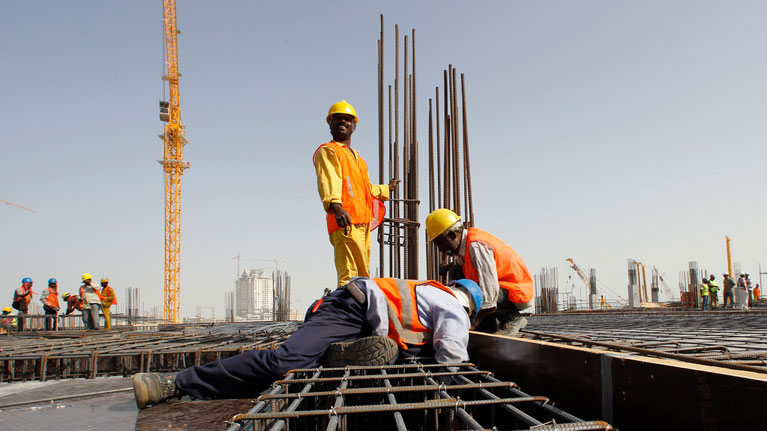The Supreme Committee has consistently stated that since the World Cup’s stadium construction started in 2014, there have only been three migrant work-related fatalities and 37 non-work-related deaths.
World Cup chief Hassan Al-Thawadi said on Monday that there were three work-related deaths and 37-non work related deaths relating to the Supreme Committee for Delivery and Legacy’s projects.
Speaking with Piers Morgan on TalkTV, Al-Thawadi also addressed the figure for deaths in all sectors in Qatar since 2014.
“The estimate is between 400 and 500.” Thawadi said. “ I don’t have the precise number, that is something that is being discussed.”
The remarks quickly gained traction online and in the international media, with outlets reporting that the hundreds of deaths were in relation to World Cup projects.
Following this, Morgan took to social media to dispel the misquoted remarks.
In the interview, Al-Thawadi added that Qatar is striving to continue improving conditions for workers.
“One death is too many, it’s as simple as that. [But] every year the health and safety standards on the sites are improving, at least on our sites, the World Cup sites, the ones we are responsible for. Most definitely to the extent that you have trade unions [commending] the work that has been done on World Cup sites and the improvement,” he said.
The Supreme Committee has consistently stated that since the World Cup’s stadium construction started in 2014, there have only been three migrant work-related fatalities and 37 non-work-related deaths.
‘Misleading’ headlines
A report published by the Guardian in February 2021 was criticised for its misleading headline that blamed deaths among Qatar’s South Asian community on the country’s preparations for the World Cup tournament this year.
The British publication’s article, headlined, “Revealed: 6,500 migrant workers have died in Qatar as it gears up for World Cup” purports to link the “shocking” death rate to the start of the 2022 FIFA World Cup journey more than a decade ago, failing to provide a clarification of the reasons behind the deaths.
Failing to cite official medical records to explain the circumstances of the deaths, the Guardian persisted to quote a labour rights expert in the Gulf who claimed it is “likely” that many workers who died were employed on these World Cup infrastructure projects.
However, Qatari authorities have continually slammed this as baseless.
Speaking to Doha News at the time, experts said the “deceptive” reporting is part of major Western media propaganda against Qatar.
Al Thawadi also disputed that figure last year, telling CNN’s Becky Anderson that the Guardian’s figure was a “sensational headline” and that the report lacked context and failed to clarify the reasons behind the deaths.
When it comes to migrant worker rights, the Gulf state says it has responded by introducing reforms to its legislation, all of which have received global praise by rights groups including the UN’s International Labour Organization, which has set up an office to oversee such changes in Qatar.
Morgan questioned Al-Thawadi during the interview about whether the World Cup project’s initial health and safety standards were adequate to which he responded:
“I think overall the need for labour reform itself dictates that, yes, improvements have to happen.”
“Just so we’re clear, this was something that was recognised before we bid. The improvements that have happened aren’t because of the World Cup. These are improvements that we knew that we had to do because of our own values.”
“The World Cup served as a vehicle, as an accelerator, as a catalyst because of the spotlight which we recognized early,” he added.
“It caused a lot of these initiatives not only in terms of improvement in the legislation, but in the enforcement of it as well.
“And that’s where today we got to a position where our most ardent of critics consider us today to be a benchmark in the region.”
Among the most major steps Qatar made was dismantling the controversial Kafala System, which stopped workers from freely transferring jobs. Another major reform is the region’s first-ever non-discriminatory minimum wage law, introduced last year.
In May last year, Qatar’s Ministry of Administrative Development, Labour and Social Affairs introduced a unified platform for complaints and disputes, which allows all members of society to submit reports against violations of the Labor Law and their employers.







